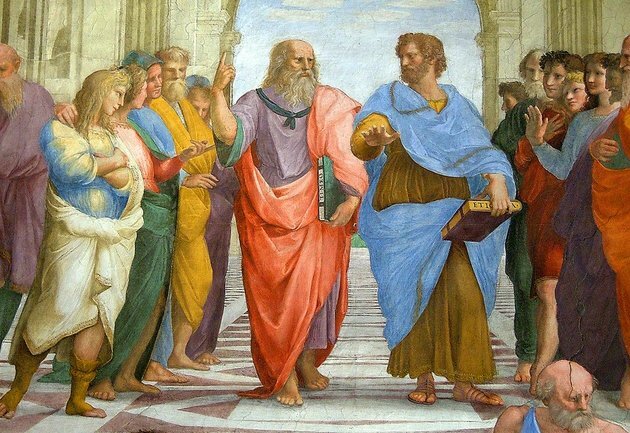Traditionally, the chapter of the History of Humanity on the theme “conflict between reason and faith” is attributed to a medieval period in which there was a confrontation between the adherents of the good news, that is, the Christian religion, and its Greek and Roman moralistic opponents, in an attempt to impose their points of views. For them, the natural world or cosmos was the source of law, order and harmony, understanding what man does part of a determined organization without which he does not recognize himself and it is through the logos that such recognition. For Christians, the revealed truth is the source of understanding what man is, what is his origin and what is his destiny, being like God the Father, owing to him obedience while his freedom consists in following the will (alliance).
From this debate, classical forms of combination of medieval priests emerge: those who separate the domains of reason and faith, but believe in a conciliation between them; those who think that faith should submit reason to revealed truth; and still those who see them as distinct and irreconcilable. This period is known as Patristics (the philosophy of the Church Fathers).
However, the point can be raised that this conflict between faith and reason represents only a localized moment in history. Philosophy, characterized by radicalism, insubordination, the struggle to overcome prejudices and establish concepts increasingly rational throughout history, shows that, since its beginning, this relationship has its moments of estrangement and reconciliation. For example, in ancient Greece, the very emergence of philosophy took place as an attempt to overcome obstacles arising from a blind faith in the narratives of the poets Homer and Hesiod, the educators of Hellas. The attempt to explain the phenomena from rational causes already evidenced the confrontation with the ways of thinking and acting (faith) of the Greek people, who based their conduct on myths. Socrates himself, patron of philosophy, was condemned for investigating nature and this earned him the charge of impiety. Later, Christian philosophy clashed to ground its ideological domain, debating the aforementioned themes. In the modern era, with the intensification of the Inquisition, there is a renaissance that appeals to human reason against the tyranny of the Church. Just look at the examples of Galileo, Bruno and Descartes, who reinvented thought against the blind faith that kept men ignorant of darkness and claimed the right to the natural light of reason. The maximum expression of this movement was the Enlightenment, which included the total overcoming of beliefs and unfounded superstitions and promised the human race better days from evolution and the progress.
Do not stop now... There's more after the advertising ;)
Today, that promise is not being fulfilled properly. Man has mastered nature, but he cannot master his passions and private interests. Declared as expropriated from the means of production and forced to survive, man is alienated from the productive process and remains in a blind domain, in an unconscious belief of oneself and the other (ideology). Irrationalism grows as human beings are promised freedom from another faith: work. Man explores and devastates the world he lives in and is not aware of it. And all this to enrich a ruling class, noting the selfish and classist interest.
It seems, therefore, that the struggle between reason and faith is not only localized, but continuous, since there are always clarifications, clarifications and resistance to these clarifications. Reason rebels against what is established and when it imposes itself, it becomes a dogma instilled in men of every age. In Hegelian language, a thesis that becomes antithesis and already needs a synthesis so that reason can unfold itself.
By João Francisco P. Cabral
Brazil School Collaborator
Graduated in Philosophy from the Federal University of Uberlândia - UFU
Master's student in Philosophy at the State University of Campinas - UNICAMP
Philosophy - Brazil School
Would you like to reference this text in a school or academic work? Look:
CABRAL, João Francisco Pereira. "Conflict between Reason and Faith"; Brazil School. Available in: https://brasilescola.uol.com.br/filosofia/o-conflito-entre-fe-razao.htm. Accessed on June 29, 2021.

